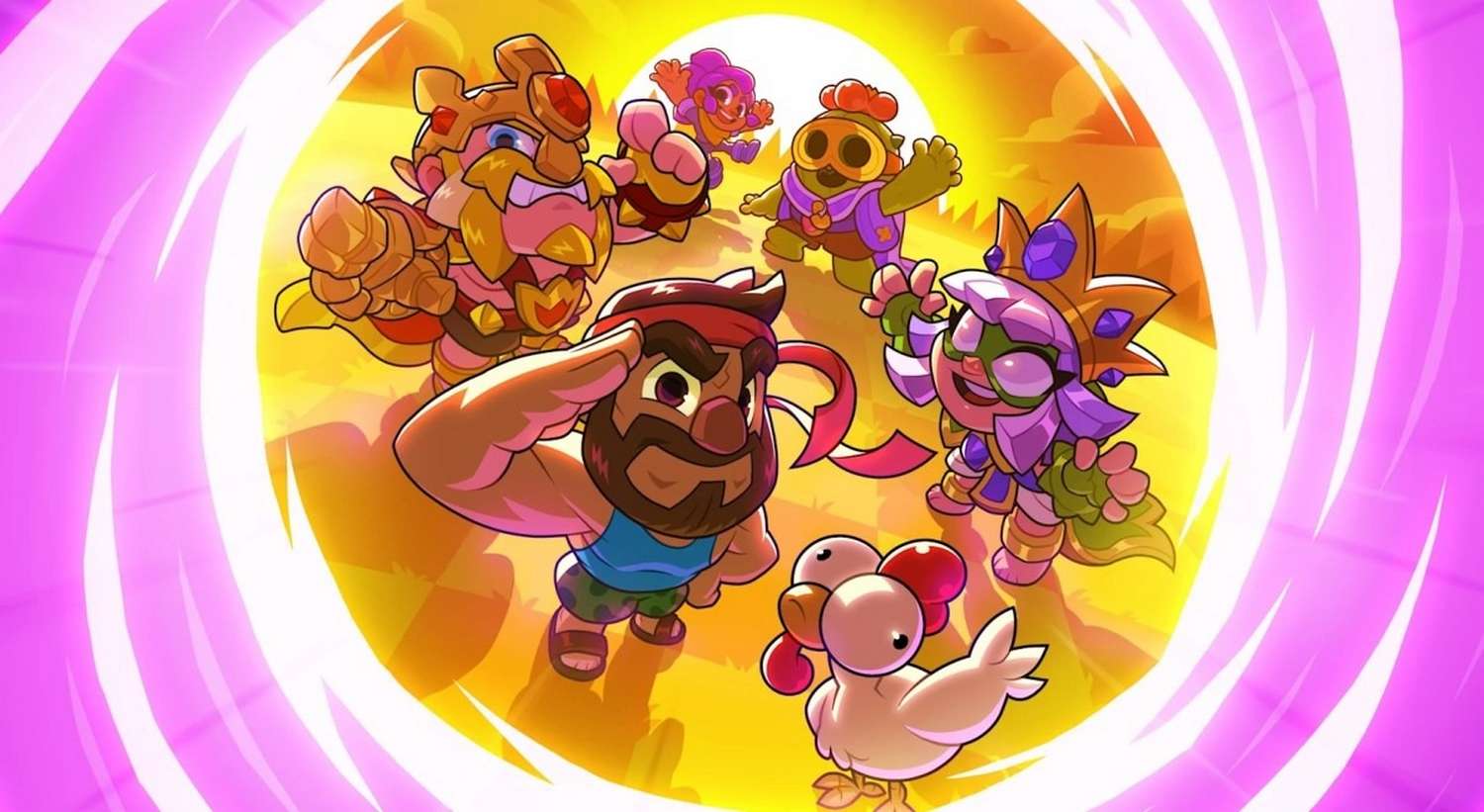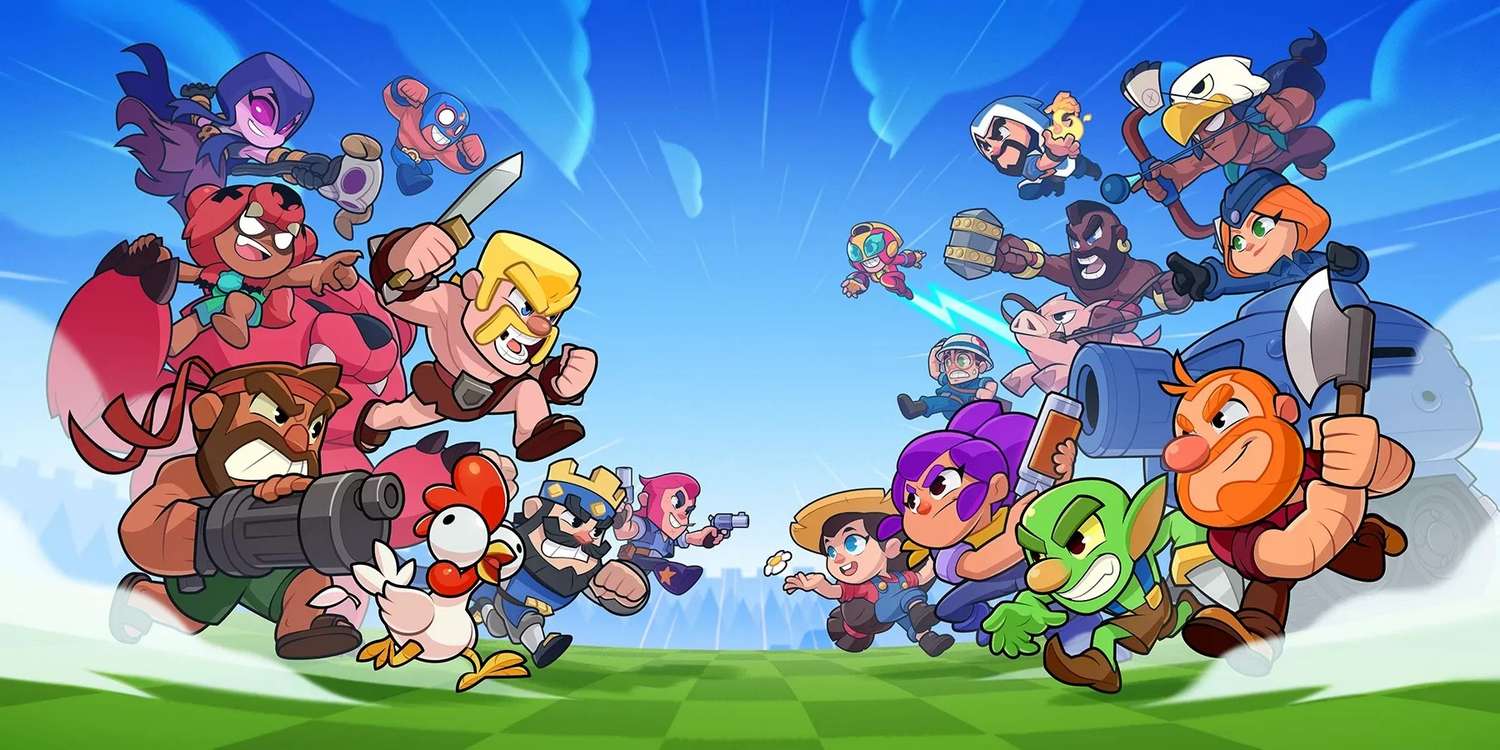Squad Busters’ Hypothetical 2026 Shutdown: Supercell’s Uncompromising Standards and Mobile Gaming’s High Stakes
Popular Now
 Grand Theft Auto VI
Grand Theft Auto VI
 Black Myth: Wukong
Black Myth: Wukong
 EA SPORT FC 25
EA SPORT FC 25
 Brawl Stars
Brawl Stars
 Free Fire
Free Fire
 Fortnite
Fortnite
 CarX Street
CarX Street
 Schedule I
Schedule I
 Toca Boca World
Toca Boca World
 Garena Free Fire: Kalahari
Garena Free Fire: Kalahari
 Squad Busters’ Hypothetical 2026 Shutdown: Supercell’s Uncompromising Standards and Mobile Gaming’s High Stakes
Squad Busters’ Hypothetical 2026 Shutdown: Supercell’s Uncompromising Standards and Mobile Gaming’s High Stakes
In a significant hypothetical development set to send ripples through the mobile gaming community, Supercell’s ambitious title, Squad Busters, is projected to cease operations in early 2026. Industry analysts and sources familiar with Supercell’s notoriously stringent performance benchmarks indicate that the game, despite an initially enthusiastic launch, has struggled to meet the Finnish giant’s demanding expectations for long-term engagement, monetization, and sustained global appeal. This potential discontinuation would underscore Supercell’s unwavering commitment to quality over quantity and its readiness to sunset titles that do not achieve stratospheric success.
Supercell, a titan in the mobile gaming sector, has cultivated a reputation not only for creating generational hits like Clash of Clans, Clash Royale, and Brawl Stars but also for its decisive approach to game development. The company famously operates on a philosophy of ‘killing darlings,’ a strategy that sees even promising games discontinued if they fail to demonstrate the potential to become billion-dollar franchises with decades-long lifespans. This policy, while harsh for the developers and players invested in a game, is central to Supercell’s business model, which prioritizes a small portfolio of highly successful, enduring titles over a broad range of mediocre performers.
The Trajectory of Squad Busters: A Closer Look at Performance Metrics
When Squad Busters first entered soft launch phases and subsequently a broader release, it garnered considerable attention due to its unique premise. It brought together iconic characters from Supercell’s diverse universe into a single, frantic multiplayer arena experience. The initial buzz was palpable, fueled by Supercell’s marketing prowess and the novelty of seeing characters from Hay Day, Boom Beach, and Clash of Clans fighting alongside each other. However, the true test for any Supercell title lies in its ability to convert initial downloads into sustained player retention and robust monetization without compromising the free-to-play experience.
Several hypothetical factors are believed to have contributed to Squad Busters falling short of Supercell’s internal key performance indicators (KPIs):
- Player Retention Challenges: While initial downloads were strong, hypothetical data suggests that long-term player retention may have plateaued below Supercell’s internal targets. The competitive landscape for casual multiplayer games is fierce, and maintaining daily active users (DAU) and monthly active users (MAU) in the face of established rivals and emerging hits is a monumental task.
- Monetization Hurdles: Supercell’s games are known for their effective yet fair monetization strategies. Hypothetically, Squad Busters’ in-game purchases and battle pass systems might not have generated the average revenue per user (ARPU) necessary to justify its continued development and marketing investment when compared to the company’s flagship titles. Achieving optimal monetization while avoiding ‘pay-to-win’ accusations is a delicate balance.
- Innovation and Iteration: The mobile gaming market constantly demands fresh content and innovative gameplay loops. Speculation suggests that while Squad Busters offered a novel concept, its core gameplay might not have evolved sufficiently or rapidly enough to keep a vast global audience engaged over the long haul. The speed of content updates and meta-changes is critical for live service games.
- Competitive Saturation: The casual multiplayer and ‘buster’ style game genre is incredibly crowded. Supercell faces intense competition not just from other major publishers but also from a myriad of indie developers offering compelling, easy-to-pick-up experiences. Distinguishing itself and securing a dominant market share requires exceptional performance.
Supercell’s ‘Kill Your Darlings’ Philosophy in Action
The hypothetical shutdown of Squad Busters would not be an isolated incident for Supercell. The company has a well-documented history of discontinuing games that do not meet its incredibly high bar. Past examples include titles like Rush Wars, Hay Day Pop, and Everdale. Each of these games had their merits and attracted dedicated player bases, but ultimately did not demonstrate the potential for the kind of exponential, long-term growth and profitability that Supercell seeks. This strategic ruthlessness, while at times painful for the community, is a core component of Supercell’s success story, allowing them to focus resources on their proven cash cows and future potential blockbusters.
This philosophy is often praised by business strategists as a disciplined approach to portfolio management, minimizing opportunity costs and maximizing resource allocation. For players, however, it represents the inherent risk of investing time and money into a live service game that might eventually be deemed commercially unviable. The 2026 hypothetical discontinuation of Squad Busters would serve as another stark reminder of the volatile nature of the mobile gaming market and Supercell’s uncompromising standards.
Impact on Players, Developers, and the Mobile Gaming Ecosystem
The hypothetical announcement of Squad Busters’ shutdown would undoubtedly evoke strong reactions from its player base. Players who have invested significant time, effort, and possibly real money into the game would face the difficult reality of losing their progress and digital assets. Supercell typically offers compensation or migration options for players of discontinued games, often in the form of in-game currency or bonuses for their other titles. However, the emotional investment and attachment to a specific game cannot always be transferred.
For the development team behind Squad Busters, a hypothetical shutdown would be a challenging moment, despite Supercell’s supportive internal culture. It would highlight the immense pressure on game developers to not just create engaging experiences but also to hit incredibly ambitious commercial targets in a highly competitive industry. This situation reinforces the notion that even with the backing of a major publisher like Supercell, success in mobile gaming is far from guaranteed.
More broadly, the hypothetical case of Squad Busters would send a clear message across the mobile gaming ecosystem: innovation and initial popularity are not enough. Sustained engagement, robust monetization, and the ability to carve out a dominant niche are paramount. Developers of other upcoming mobile titles would likely scrutinize their own KPIs even more closely, understanding that even the most well-funded projects can be deemed insufficient if they don’t meet the highest tiers of performance.
Looking Ahead: Supercell’s Future and Lessons from Hypothetical Discontinuations
Should Squad Busters indeed face a hypothetical shutdown in 2026, it would serve as a powerful case study for the entire gaming industry. It would reinforce several critical lessons:
- The Bar for Success is Ever Higher: With development costs rising and player expectations soaring, the threshold for what constitutes a ‘successful’ mobile game, especially for a company like Supercell, is continuously increasing.
- Data-Driven Decisions Rule: Supercell’s decisions are heavily influenced by extensive data analysis on player behavior, spending patterns, and market trends. The hypothetical end of Squad Busters would be a direct outcome of these data-driven insights.
- Focus on Core Strengths: This hypothetical scenario might lead Supercell to further concentrate its resources on its mega-hit franchises and perhaps explore new genres with extreme caution, ensuring any new venture has a clear path to extraordinary success.
- Player Trust and Transparency: While Supercell is known for its decisive actions, how such a hypothetical shutdown is communicated to players, and what support is offered, will be crucial for maintaining long-term player trust across its other titles.
The hypothetical curtain call for Squad Busters in 2026, driven by Supercell’s stringent expectations, highlights the brutal yet commercially rational realities of the mobile gaming industry. It’s a landscape where only the truly exceptional survive and thrive for decades, and even well-received games can be deemed insufficient if they don’t align with a publisher’s ultimate vision for global domination and enduring profitability.










